Foundation for Rural & Regional Renewal (FRRR)
FRRR’s Not-for-Profit Fundraising Accounts help make FRRR’s unique tax status available to community organisations to assist with fundraising.
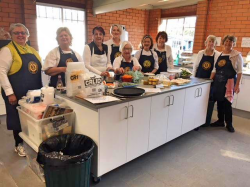
The Royal Agricultural Society of NSW (RAS) Foundation helps to build strong, vibrant and resilient rural communities through education and skills development. The Foundation operates the RAS Rural Fund, a charitable organisation that is currently fundraising via a Not-for-Profit Fundraising Account to help community organisations across rural and regional NSW refurbish and restore rural showground kitchens.
Not only is the kitchen the heart of the home, but it is also often the heart and soul of rural communities, serving as a meeting place and hub for activities. Many showground kitchens across NSW require an upgrade to provide more functional facilities to benefit their communities and better support a broad range of events and activities. The RAS NSW Showground Kitchen Upgrade Grant project will provide critical funds to improve kitchens to serve their communities better, enabling them to come together to support one another, through fundraising events and other activities.
If you want to support this initiative and make a tax-deductible donation, you can do so via FRRR’s secure website.
If you’d like to explore having a fundraising account for your community project, contact Jo Kemp, FRRR’s Philanthropic Services Manager.
The Sunset Strip Village is located on Menindee Lakes in NSW and has experienced severe drought cycles for the past seven years. Without a water supply for the Community Centre Precinct lawns, Landcare Nursery and land restoration sites, the areas turned brown and undesirable.
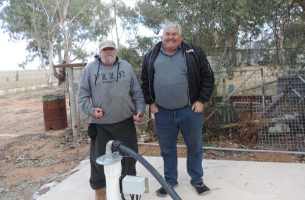
The psychological and economic impact of the long-lasting drought has led to painful shortfalls for the community, including the tragic death of a much-loved local volunteer. In addition, at least 28 families in the agricultural industry have abandoned the area, with weekend residents quick to follow suit. The result was a drying and demoralised Sunset Strip, with a third of its houses up for sale.
The Sunset Strip Progress Association Inc (SSPAI) is a locally run not-for-profit, co-managing everything from the local pub to the post office. This resilient group of volunteers have tackled drought-related challenges in the community since 2012, and they were not about to give up their sunny strip. SSPAI knew what their village needed in order to not only survive, but grow and thrive as a small rural community – and they were willing to put in the work to make it happen.
The idea was simple: make the area green and prosperity will follow. The project has well-received by the community as it they all wanted to see the Community Centre Precinct flourish, a restoration of Landcare plantations, and an increase in lifestyle, liveability and house sales with new residents.
Thanks to a $19,070 Tackling Tough Times Together grant funded by the Australian Government, the Sunset Strip Progress Association purchased a submersible pump, a 1,000-watt solar panel, a water controller, a pressure solar pump and 3,300-gallon water tank to a create a permanent groundwater source for the 6,000 sqm flourishing community lawn around the Community Centre Precinct.
Since this much-needed investment, the benefits in the whole village have been obvious. The Sunset Strip Village has welcomed three new families and seen an overall renewed positive atmosphere in the community. The Landcare Nursery Team are growing seedlings that will ensure future growth and thriving greenery – making the Village a desirable destination to work and live again.
In Eden and the wider Far South Coast region of NSW, there has long been a problem with disengaged and disadvantaged youth. Youth unemployment accounts for 25% of all unemployed people in Eden (ABS, 2016). Twelve percent of students in Eden don’t complete year 12, which is double the state average. Young people are unable to get meaningful employment or job-ready skills, and as a result become disengaged. It is a problem that poses a challenge for many communities.
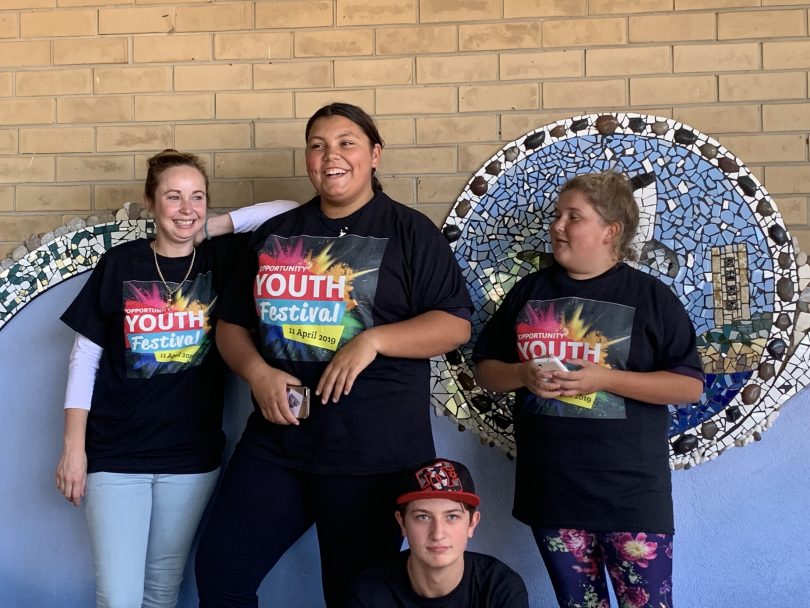
The Eden Game Development Centre in conjunction with the Eden Community Access Centre received a grant for $9,262 through the FRRR ABC Heywire Youth Innovation Grants program. It was to deliver their version of the Heywire Step Up initiative to inspire disengaged young people to take the first step on their journey to success.
William Sharples, who led the development and implementation of the project, drew on his personal experience to inspire and motivate a team of young people to facilitate the ‘Opportunity Youth Festival’, which was held in Eden in April 2019. Like many others in his community, William had tried to seek meaningful and enjoyable work, but living in a rural town, felt his opportunities were limited.
Discovering a passion for video game development and coding, along with the suport of a few key mentors meant William became more engaged. He has followed his dream and now runs the Eden Game Development Centre, teaching young people tech skills like coding, game development and virtual reality.
As a Heywire Trailblazer alumnus, William jumped at the chance to adopt and adapt the Step Up idea to create a fun event, featuring free food and great entertainment, to attract local young people. To ensure it resonated with local youth, he involved young people in the planning and execution of the day.
With so many people and local organisations putting in efforts to create opportunities for local young people, this was a great chance to showcase the opportunities in a fun and engaging manner to attract young people to investigate options available to them.
The theme of the festival was ‘opportunity’ and there was plenty of that to go around. Around 400 youth came from all over Eden and surrounding areas to spend a day showing off their talents, as well as learning about what the future might hold for them.
Weeks of planning by the Youth Project Committee resulted in a spectacular day of fun and frivolity, including local youth bands and singers, displays from 35 services and sporting organisations, and plenty more activities.
Feedback was very positive, with participants and services asking if the event was going to be held again in 2020. In acquitting their report, Eden Community Access Centre said they found their greatest success (and challenge!) was letting youth ‘run the show’, with the Steering Committee merely facilitating their ideas and keeping the event safe and within budget.
Grants of up to $150,000 available for Enhancing Country Health Outcomes
Bendigo, 5 May 2020: The Foundation for Rural and Regional Renewal (FRRR) is inviting not-for-profit organisations to apply for an Enhancing Country Health Outcomes (ECHO) grant to deliver initiatives that improve the health of people living in rural, regional and remote Victoria and New South Wales.
Rural communities face distinct challenges associated with distance and isolation, which place these regions at greater risk of poorer health management and outcomes than those living in metropolitan areas. In addition to these challenges, many parts of NSW and Victoria have been affected by drought, bushfires and now COVID-19, all of which have significant impacts on health care resources.
The ECHO grants program launched in 2018 thanks to a generous donation from Beyond Medical Education. The program offers targeted grants of between $50,000 and $150,000 for charitable initiatives delivered by not-for-profit organisations to strengthen, improve access to, and retain the quality of relevant and appropriate primary health care services in rural, regional and remote Victoria and NSW.
FRRR CEO, Natalie Egleton, says that basic health services, programs and equipment are vital to the sustainability of rural communities.
“Many of Victoria and New South Wales’ rural communities have limited access to appropriate primary health care. This has been compounded by the drought, bushfires, and now by the COVID-19 pandemic, and highlights the real need for communities to be able to attract resources and implement sustainable, best practice models that will see better health outcomes for local residents.
“Last year, we awarded $475,000 in grants through this program, and it’s great to see them making a real difference in the community. For example, Latrobe Community Health Service received a grant of $125,200 to implement the ‘Telkaya Project – Very Brief Advice For Behavioural Change’. Through this project, LCHS developed online training and support materials regarding lifestyle changes around smoking, nutrition, alcohol and physical activity. Staff are now able to integrate this intervention advice into their routine primary health care services.
“Mallacoota Community Health, Infrastructure and Resilience Fund, in Victoria, was another ECHO grant recipient, using $136,864 to help the local medical clinic get additional health services up and running. Patients can now access services including a general mental health program and Teen Clinic and a piloted nurse-led after-hours service, which has been particularly valuable given the impact of the fires,” said Ms Egleton.
Other types of rural and regional focussed projects that could be eligible include innovative primary health care training and leading-edge professional development to address an identified local need; measures to enhance the retention of primary health care services; or fostering local partnerships to develop better primary health care models. Full details and other examples are available in the program guidelines.
“The bushfires and COVID-19 have emphasised the real need for quality primary health services in rural and regional areas. Building strong and sustainable relationships that support the health of these communities is critical. It’s wonderful to be able to provide support for projects on the ground that foster this kind of long-term, health care provider collaboration,” said Ms Egleton.
Applications can be made via FRRR’s Grants Gateway, and close at 5pm AEST, 9 June 2020. Outcomes will be advised mid-August 2020.
Northern Rivers Community Foundation (NRCF) was established in 2004 with the purpose to connect people who care with local causes that matter, to improve community well-being for the Northern Rivers region of NSW. They provide annual grants to a wide range of community groups for projects ranging from mental health, to growing fresh food to ensure children are well nourished and can learn, to distributing Back to School vouchers. NRCF is particularly focused on supporting grand-carers, supporting riding for the disabled and palliative care.
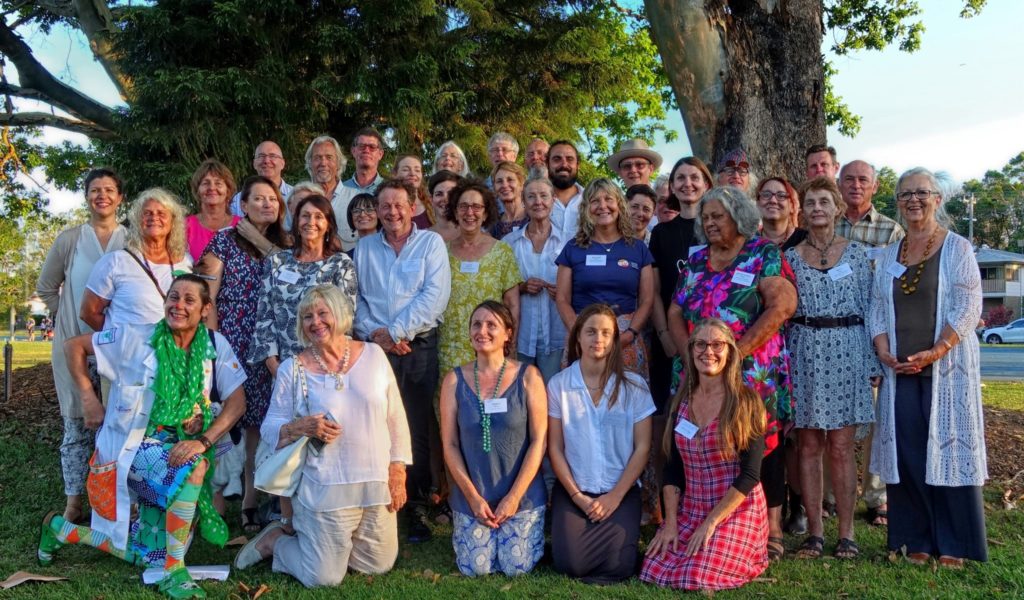
FRRR’s NRCF Community Foundation Account helps facilitate donations for a number of their partners and enables them to leverage FRRR’s tax deductible status to maximise their donations. In 2019 they distributed some $114,000 in grants including to the Bangalow Koalas to set up a wildlife corridor; provided medical equipment to Tweed Palliative Support and Wedgetail Retreat Community Hospice; enabled the Bunjum Aboriginal Corporation to refresh their unit used as a transition house for women fleeing violence; provided professional development for tutors and support workers at Sprung Integrated Dance Theatre; and supported a youth program for first offenders with NSW Police participation.
The Lockhart & District Historical Society operates the Greens Gunyah Museum, the Doris Golder Gallery and the local Visitor Information Centre in the NSW Riverina. They saw a wonderful opportunity for expansion when the building and land next to the museum was listed for sale, under the guise of the Double the Space Double the History Project.
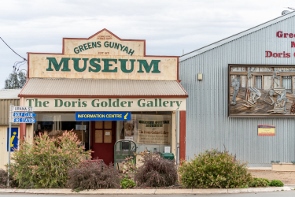
A fundraising campaign, using a FRRR fundraising account and a $15,000 grant from the Culture, Arts, Tourism and Community Heritage (CATCH) grants program allowed the Historical Society to purchase the adjoining property and expand their offerings to include hosting events. New displays could also be developed and storyboards showcasing historical and contemporary stories of agriculture within the region. The Greens Gunyah Museum is participating in a project with ten other museums within the Riverina region to collect video footage of rare and iconic agricultural machines found within the participating museums, and interviews with past operators. Importantly, the collection could be displayed above the flood line and provide an all-weather area in which the collection can be interpreted through a new electronic display, photographs and associated items. Floodwaters up to a metre high had previously come through the museum in 2010 and 2012.
After four long years, and a fundraising campaign which delivered the just under $100,000 required for the project and the revived Greens Gunyah Museum was completed in May 2019. The public is now visiting and able to enjoy exhibitions that have been developed so far.
An exhibition for the politician, diplomat and proud Lockhart local Tim Fischer opened on 2 May 2019 in one of the rooms with an outstanding response from the community. Over 200 people celebrated with Tim, who was able to enjoy his exhibition before he became too ill to attend.
Glen Innes is a small town in the Northern Tablelands of NSW, similar to many other rural farming communities enduring the unrelenting drought. GLENRAC, a local not for profit Landcare network, understands that the farming lifestyle often means that farming families do not have the time to engage in social activities as much as people who live and work in town. On top this, the impact of the drought means that this lack of time is exacerbated hugely, with farmers busy feeding their stock most days, and trying to maintain the rest of their farm in the remaining time.
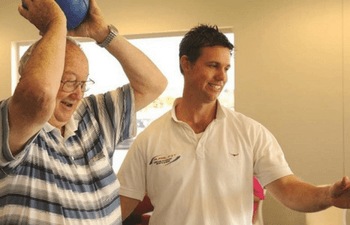
The flow on effect of this is that often farmers in these communities neglect their own physical and mental wellbeing.
“We know that regardless of how well you run your stock, operate your property and manage your business, if your health is compromised, you aren’t able to work to your full ability,” GLENRAC Project Manager Pamela Benton, told the Glen Innes Examiner.
With support from the Tackling Tough Time Together (TTTT) program, GLENRAC partnered with Rural Fit to deliver the Friends with Health Benefits program to Glen Innes farmers, helping to improve their fitness and overall health. The $9,826 grant meant that GLENRAC were able to offer free access to an online group fitness forum and phone calls to Rural Fit for 15 participants over four months.
The program focused on providing:
- Weight loss support;
- Strength training;
- Improving cardiovascular fitness;
- Management and prevention of metabolic conditions – diabetes, cholesterol, and hypertension;
- Management of mental health conditions;
- Stress management;
- Flexibility or joint stability;
- How to reduce injury risk;
- Improving sleep and reducing fatigue;
- Pain / injury management.
The program was officially launched at GLENRAC’s Fit Farmers event in September 2016, which was also R U OK Day. An evaluation at the completion of the program saw that the participating farmers felt better about themselves, were keen to continue to improve their physical fitness, and had developed a new interest in nutrition and made new friends.
New program offers grants up to $150,000 in rural NSW and VIC to improve health services
Bendigo, 31 May 2018: It’s no secret that distance and isolation place rural and regional communities at greater risk of poorer health outcomes and management. To provide much-needed support, the Foundation for Rural and Regional Renewal (FRRR) has launched a new funding program that will help to improve health outcomes for people living in rural, regional and remote New South Wales and Victoria.
The Enhancing Country Health Outcomes (ECHO) program will provide grants for charitable initiatives that strengthen, improve accessibility and retain quality primary health care services in local communities.
The funding for this program comes via Beyond Medical Education, which closed down due to changes in government policy and transferred their funds to FRRR. Thanks to this generous donation, grants of up to $150,000 are available for projects to be delivered over two-years from October 2018. Approximately $ 825,000 is available over two rounds.
FRRR CEO, Natalie Egleton says that priority will be given to locally driven initiatives that support primary health care.
“Basic health services, programs and equipment are vital to the sustainability of small communities. Through ECHO, we can support local communities to attract resources and implement best practice sustainable models to help local residents to live and thrive in their communities.
“FRRR has previously supported a number of projects that achieved better health outcomes for community members. For example, we funded the Australian College of Optometry to purchase a slit lamp to enhance the level of eye care in Ouyen, Victoria. Patients can now receive early intervention and be treated locally rather than travelling 100 km for specialist appointments. This program will mean that there can be more of these kinds of local initiatives,” said Ms Egleton.
Other projects that could be eligible include primary health care training and leading-edge professional development in a rural and remote context; measures to enhance the retention of primary healthcare services in rural and remote locations; or fostering local partnerships to develop better primary health care models in their community. Full details and other examples are available in the program guidelines.
Lynda Vamvoukis, a former CEO of Beyond Medical Education, said that in gifting the remaining funds to FRRR, the Board wanted to ensure funds were available to community groups that are focused on addressing local primary health care needs.
“Quality primary health services and building long term, sustainable relationships are critical, especially in rural and regional areas. This program provides support on the ground for collaborative, multidisciplinary and integrated projects that respond to specific primary health care issues within a local community,” said Ms Vamvoukis.
Applications for the ECHO program close on 9 July 2018.
Bendigo, 2nd March 2018: The Foundation for Rural and Regional Renewal (FRRR) has announced that three NSW communities will be the first to trial a new national framework to improve community disaster preparedness and resilience.
The pilot communities are Ocean Shores, Wee Waa and North Richmond. With support from the NSW Government through the Office of Emergency Management, as well a number of philanthropic partners, the pilots will identify effective approaches to building community resilience and determine what is needed for their communities to be better prepared and more resilient in the event of a natural disaster.
These three pilots are the first in the Disaster Resilient: Future Ready program, which will empower local communities to co-design a framework and provide an evidence base that aims to ultimately increase awareness of risk and build capacity to strengthen the disaster preparedness and resilience of communities throughout NSW and Australia.
Natalie Egleton, CEO of FRRR says that with more frequent and severe natural disasters, there is clear evidence that their effects can be mitigated with better community preparedness but that each community needs to be involved in developing its own approach that is relevant to their context.
“We know that when communities are better prepared for disasters, they recover faster and more effectively than those that are not. So, we are using the latest research into how communities can build their resilience to inform these community-led, place-based pilots.
“Each of the pilot communities is either at-risk or has experienced the impact of a natural disaster in the past. Most importantly, they have the capacity and interest to participate in this new approach to developing community-led preparedness.
“To help us develop this into a national framework and ensure it is robust, we have engaged the University of Sydney to support and evaluate the co-design process and the approaches adopted by pilot communities.
“Local leaders will use the framework to identify priority community initiatives, which we intend to fund with grants. The projects will be evaluated to establish evidence of best practice approaches that can be adopted and adapted on a national-scale for other communities, so they too can improve their preparedness and resilience,” explained Ms Egleton.
FRRR has been able to develop and implement this program with the generous support of partners including Prince’s Trust Australia, Ronald Geoffrey Arnott Foundation, a number of private donors and the NSW Government.
FRRR estimates that this project requires a minimum of $1.5 million over the next three years to deliver the program nationally.
The Blue Mountains Food Co-operative has been supporting and empowering the community to eat well and live healthily and sustainably in Katoomba, NSW for almost 50 years – well before it was trendy!
They have a shop in which they sell fresh and bulk whole foods, seeds, and ecofriendly products, give 10% of their surplus to support local not for profit food and social justice related programs each year, and engaging with community through education programs (Wellness Wednesday, Mending Mondays), and outreach programs at the North Katoomba Community Hub and Katoomba Community Gardens.
The co-op is always looking for new ways to get people excited about health and wellbeing, and it’s no secret that the low intake of fruit and vegetables and high intake of fast food and processed snack foods is a major public health concern in Australia.
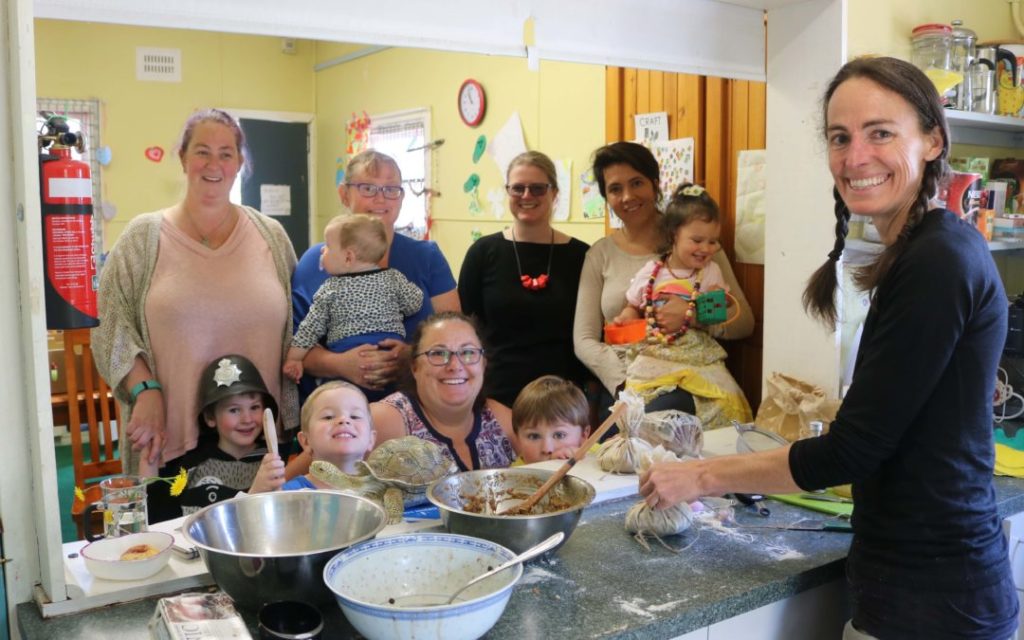
Establishing good eating habits in families with young children is crucial as a poor diet in children can increase disease and obesity, and impact negatively on physical development and cognitive functioning. Socio economic factors can be a big factor in the quality of a child’s diet; ‘Nourishing Families’ was devised as a program to support families with young children in the North Katoomba, the Blue Mountains LGA with the greatest level of disadvantage, to establish healthy eating patterns to improve their long term health and wellbeing. The five session pilot program of cooking workshops for parents and carers of children 0-5 years was run in 2017, building knowledge, skills and confidence for families to make nutritious food for from affordable seasonal ingredients, with the added benefit of social connection and conversations about food through a fun shared activity.
The program was supported with a $2,100 Small Grant thanks to Scenic World Blue Mountains, and run at the North Katoomba Community Hub Play and Chat playgroup. The program was flexible to the responses and needs of the group and gathered feedback and input from the participants pre and post program, both formally via surveys and informally through conversation. Families learnt how to make delicious and healthy family meals for the first few sessions and then focussed on cooking skills that were requested by the group, including making sauerkraut and muesli bars.
Gaining confidence in the kitchen is a great outcome, meaning these families will be willing to try new things, new flavours, and find ways to reduce food waste.
“I have enjoyed learning about new ways to cook and trying a cooking technique (fermenting) that I hadn’t been brave enough to try before.”
“All the new ingredients and flavours that I’m not normally brave enough to buy.”
“I actually went home and used some of the ideas.”
“Great way to use up the dead and dying veggies” (re fried rice recipe)
Whats more, a kitchen garden project at the hub also grew out of the pilot. It was established in November 2017 and has some great crops growing. You can read more about it here.
Having established that the model achieves its aims on a small scale, the co-op plans to deliver the program for a full year to achieve a larger and more long lasting impact for families with young children in North Katoomba. The program will form a basis for a collection of recipes and health information that can be an ongoing resource for Play and Chat families and their networks.

